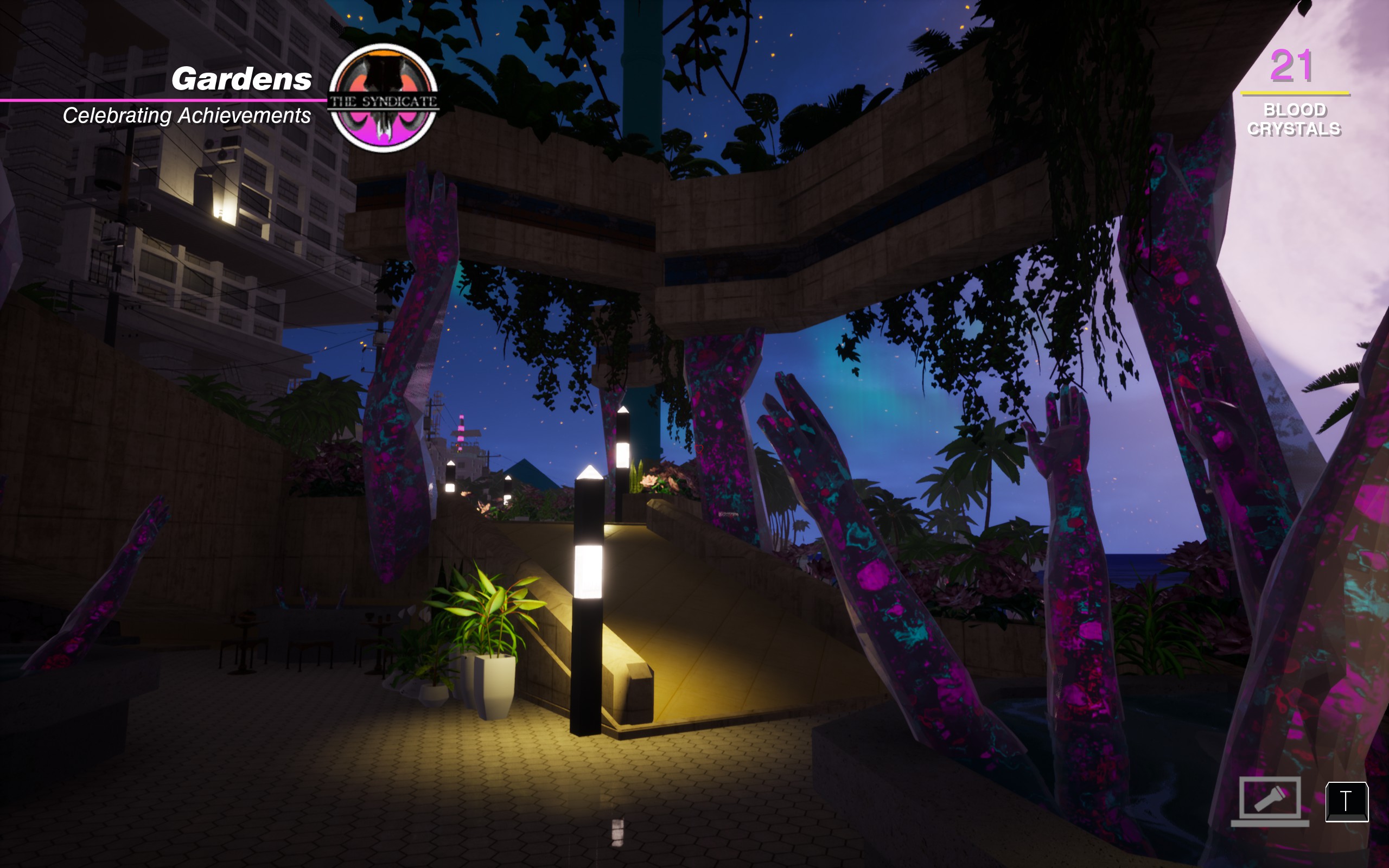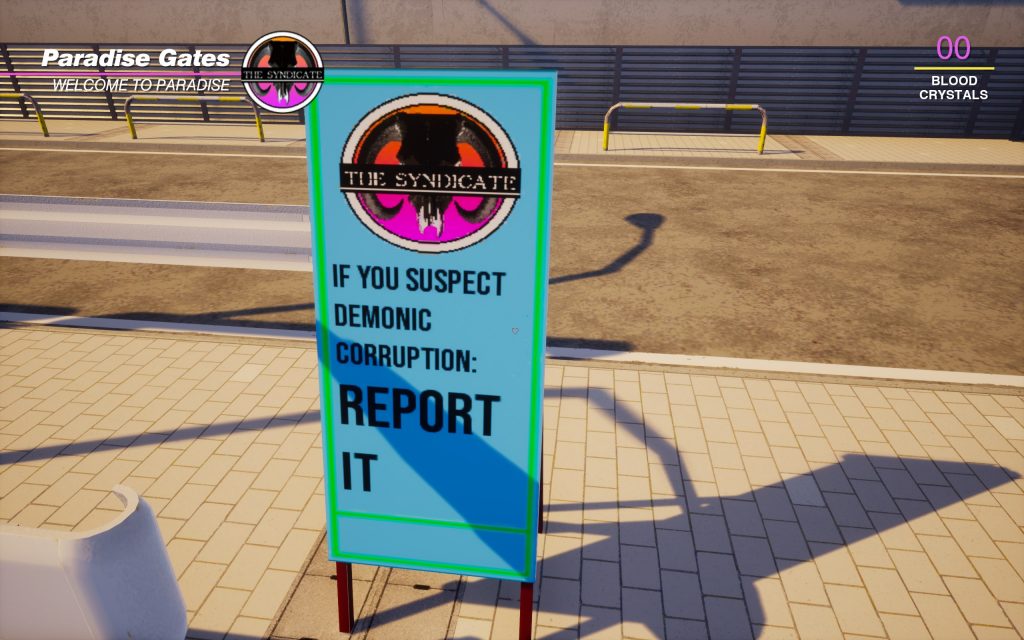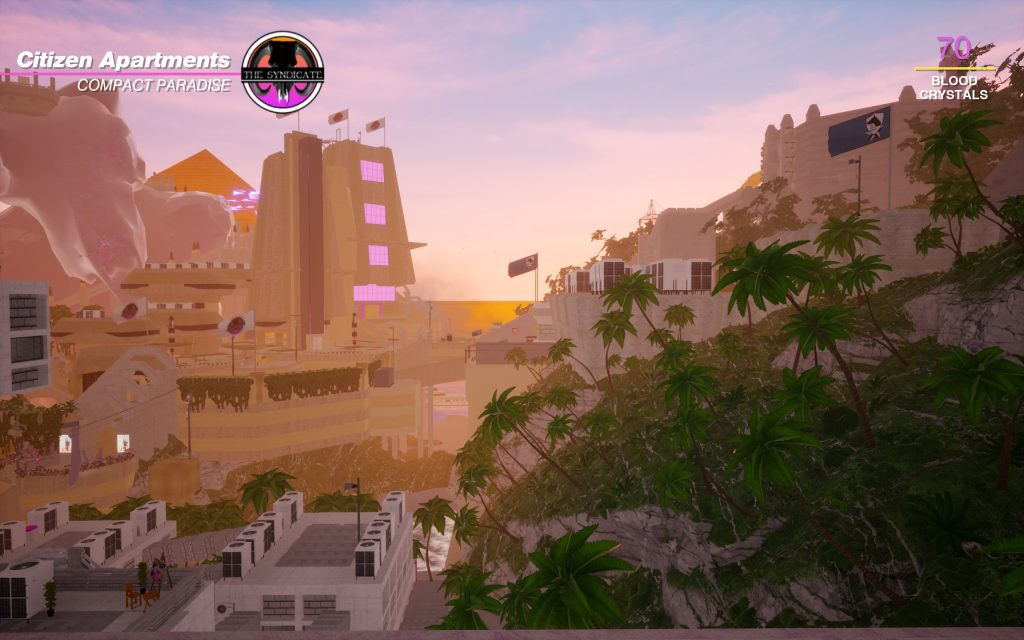
Paradise Killer feels like a natural extension of lovably bizarre series like Danganronpa and Zero Escape. It has plenty of familiar pieces: a cast of over-the-top characters, a tangle of mysteries to solve, and a surreal world to explore. It has the same brazen and self-assured strangeness, but brought to unprecedented new heights.
Paradise Killer puts players in the shoes of Lady Love Dies, a so-called "investigation freak", who's been brought back from exile to solve a grisly series of murders. The story takes place in Paradise, an extradimensional island in which a collective of immortal beings attempt to commune with and resurrect dead alien gods. There have been 23 iterations of the island before this one, each a failure. Each one was corrupted by demons, abandoned, and built anew. The murders occurred just before the transition to Island Sequence 25, which is rumored to finally be the perfect one.

A Different Kind of Open World
Island Sequence 24 is filled with monuments and tributes to a pantheon of strange gods. The visual motifs on the island, and the themes with which the gods are associated, are reminiscent of ancient civilizations (better articulated by this reddit user). But even to the less historically knowledgeable player (me), the pastiche of ancient religious symbols and vaporwave aesthetics forms a striking and unforgettable visual style.
And in a year brimming with incredible indie game soundtracks, Paradise Killer's still stands out. It's a jazzy, funky, vaporwave odyssey, filled with head-nodding beats and synth stings and noodling saxophones. It's easily the most fun listening experience I've had with a video game this year.
The soundtrack and visuals are so engrossing that even simply hunting for the collectibles scattered across Island Sequence 24 is a gratifying experience. Some can unlock useful navigation and movement abilities, but they're largely unnecessary. Even so, the island is just that richly detailed and fun to explore; I found myself happily tracking them all down. Paradise Killer's primary focus, however, is on something else: investigation.
Nonlinear Investigation
All over Island Sequence 24 are clues to the strange inhabitants' pasts and their possible involvement with the murders. As Love Dies collects evidence, numerous elaborate stories unfold around the night of the murder. Some areas will be impossible to access to without first acquiring certain capabilities for your hacking computer, which means that there's an expanding ring of evidence to uncover. Even with certain discoveries lying behind locked doors, there's a wealth of evidence to uncover in just about any order.
Thanks to that nonlinearity, the mystery unravels organically, always filled with inexplicable gaps. Combined with cheeky, colorful writing and characters who are as charismatic as they are inscrutable, the mystery tends to only get weirder. Connections between random details form as the investigation progresses. There are also a few wild twists that are certain to cast doubt upon any premature conclusions. The way that the backstory of the world unfurls organically calls to mind Outer Wilds, which was my favorite game of last year.

This sense of discovery is what has made exploring open worlds exciting to me again. AAA games like to parcel out and commodify every element of their worlds, which has left me exhausted in recent years. Game worlds like Outer World's solar system or Island Sequence 24 feel like much more than just a scattering of map markers or procedural encounters. By visiting two separate parts of the world, I learn things that connect them, like filling in pieces of a puzzle.
Paradise Killer's finale is fascinating in its own right, and brings into question what something like "justice" might really mean. But I don't want to talk too much about that, for risk of spoiling some really interesting parts. Really, what drew me in was the world itself.
When I first decided to put Paradise Killer this high on my list, I couldn't quite figure out why I was compelled to do so. But in writing this piece, it occurred to me that Paradise Killer isn't just a game that I played this year, but a place that I visited. It's a space I became familiar with, whose paths I learned to navigate, whose history I discovered. That's a particularly potent feeling in a year where so many folks avoided travel entirely for the sake of safety. I really hope to see more games with such beautiful and strange worlds to explore.
